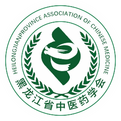This official WeChat account is from the Heilongjiang Provincial Association of Traditional Chinese Medicine. If you have not followed us yet, please click the blue “Longjiang Traditional Chinese Medicine” above to follow.
IIntroduction: The Zeng Ye Tang (增液汤, Increase Fluid Decoction) has the effect of increasing fluids and moistening dryness. It is primarily used to treat Yangming warm disease and deficiency of body fluids leading to constipation, characterized by hard stools, thirst, and a dry red tongue. Patients with deficiency of body fluids and constipation can choose this formula for treatment.

Zeng Ye Tang
[Original Text] In cases of Yangming warm disease without upper jiao symptoms, if there is no bowel movement for several days, one should use purgative methods. However, if the patient has a deficiency of Yin, one should not use Cheng Qi Tang (承气汤, Purging Decoction) but rather Zeng Ye Tang. After taking Zeng Ye Tang, observe for 12 hours; if there is still no bowel movement, one may combine it with Tiao Wei Cheng Qi Tang (调胃承气汤, Regulating Stomach Purging Decoction) for a mild effect. The formula for Zeng Ye Tang (salty, cold, bitter, sweet method): 1 liang of Yuan Shen (元参, Scrophularia), 8 qian of Mai Dong (麦冬, Ophiopogon), and 8 qian of Sheng Di Huang (生地黄, Rehmannia). Use 8 cups of water, boil down to 3 cups, and if thirsty, drink it all. If still constipated, prepare another dose.[Interpretation] In Yangming warm disease without upper jiao symptoms, if there is no bowel movement for several days, one should use purgative methods for treatment. If the patient has a deficiency of Yin fluids, even if there is constipation, Cheng Qi Tang should not be used; instead, Zeng Ye Tang should be administered. After taking Zeng Ye Tang, observe for 24 hours; if there is still no bowel movement, it can be combined with Tiao Wei Cheng Qi Tang for a gentle purgative effect to harmonize the stomach qi and facilitate bowel movements. The above discusses three treatment methods for Yangming warm disease that can use purgative methods: for heat accumulation in the intestines and significant Yin fluid depletion, Da Cheng Qi Tang (大承气汤, Major Purging Decoction) should be used; for cases with a focus on heat accumulation in the intestines but less obvious Yin fluid damage, Tiao Wei Cheng Qi Tang should be used; and for cases with a focus on Yin fluid depletion and less heat accumulation, Zeng Ye Tang should be used. This emphasizes the importance of preserving Yin fluids in patients with warm disease when Yin fluids are already deficient.[Clinical Application] Zeng Ye Tang has the effect of increasing fluids and moistening dryness, primarily treating Yangming warm disease and deficiency of body fluids leading to constipation, characterized by hard stools, thirst, dry red tongue, and a fine rapid or weak pulse. This condition is due to pathogenic heat consuming body fluids, leading to Yin deficiency and dryness, which cannot moisten the intestines. Therefore, it heavily uses Xuan Shen (玄参, Scrophularia) for its salty, cold, and Yin-nourishing properties to clear heat and moisten dryness, Sheng Di Huang for its sweet, cold, and Yin-nourishing properties, and Mai Dong for its sweet, cold, and lung-stomach nourishing properties. These three herbs are salty, sweet, and bitter, cold, nourishing Yin, increasing fluids, and clearing heat, hence the “salty, cold, bitter, sweet method.” Adjustments: If the deficiency of body fluids and dryness-heat is severe, and after taking Zeng Ye Tang there is still no bowel movement, one may add Sheng Da Huang (生大黄, Rhubarb) and Mang Xiao (芒硝, Glauber’s salt) to clear heat and promote bowel movements, softening hardness and moistening dryness.[Case Studies] 1. Case of Dr. Meng Jingchun: A 25-year-old female patient presented with dry and hard stools, having a bowel movement every 4-5 days, with hard texture, thirst, scant menstruation, normal urination, and normal appetite. Her tongue was red with thin coating, and her pulse was fine and slightly rapid. She had previously sought treatment from a warm disease specialist, who prescribed: 30g of Sheng Di Huang, 50g of Xuan Shen, 30g of Mai Dong, 3g of Sha Ren (砂仁, Amomum), 18g of Rou Cong Rong (肉苁蓉, Cistanche), 60g of Gua Lou (瓜蒌, Trichosanthes), and 25g of Ma Zi Ren (麻子仁, Hemp Seed), for 7 doses. After no improvement, she consulted Professor Meng Jingchun, reporting no change in symptoms and continued constipation. Professor Meng prescribed: 15g of Xuan Shen, 12g of Sheng Di Huang, 10g of Mai Dong, 12g of Dang Gui (当归, Angelica), 20g of Rou Cong Rong, 30g of Sheng Bai Zhu (生白术, Atractylodes), 30g of Hei Zhi Ma (黑芝麻, Black Sesame), 20g of Zhi Zi Wan (炙紫菀, Aster), 15g of Yu Li Ren (郁李仁, Prunus), and 20g of Sheng Mai Ya (生麦芽, Barley), for 7 doses. The patient had a bowel movement once a day, with a slightly pale red tongue, and continued with another 7 doses for follow-up. The prescription included: 12g of Xuan Shen, 12g of Sheng Di Huang, 12g of Dang Gui, 20g of Rou Cong Rong, 40g of Sheng Bai Zhu, 30g of Hei Zhi Ma, 12g of Zhi Zi Wan, 15g of Yu Li Ren, 10g of Chao Zhi Ke (炒枳壳, Bitter Orange), 20g of Sheng Mai Ya, 10g of Lai Fu Zi (莱菔子, Radish Seed), and 10g of Xing Ren (杏仁, Apricot Kernel). 2. Case of Dr. Yang Jin: Treated a patient with habitual constipation for over 10 years, aged 55, presenting with symptoms of thirst, weight loss, five hearts heat, red tongue with little coating, and bowel movements once every week or longer, requiring the use of laxatives to facilitate bowel movements. Initially, due to typical signs of Yin deficiency, he prescribed Wu Ren Wan (五仁丸, Five Nut Pill) and Ma Zi Ren Wan (麻子仁丸, Hemp Seed Pill), but the effect was unsatisfactory. Later, he switched to Zeng Ye Tang, but the effect was still not significant, and he felt it necessary to add Da Huang. Considering that the patient rarely felt the urge to defecate and had to strain significantly, it was indicative of Qi deficiency in the intestines. Additionally, considering the patient’s age, he added 18g of Huang Qi (黄芪, Astragalus) and 15g of Rou Cong Rong. After this adjustment, the patient achieved good results without needing to add Da Huang to facilitate bowel movements, and after continuous treatment for over a month, the constipation was essentially cured.
Disclaimer:
1. All information published on this platform comes from relevant public accounts, and the copyright belongs to the respective rights holders. If there are any improper uses, please feel free to contact us for removal.
2. The medical or health articles recommended by this platform are for reference only. Please follow medical advice for specific situations.
Want to know more?
Then hurry up and follow us!

Long press the QR code to follow us.
Welcome to contact Longjiang Traditional Chinese Medicine

